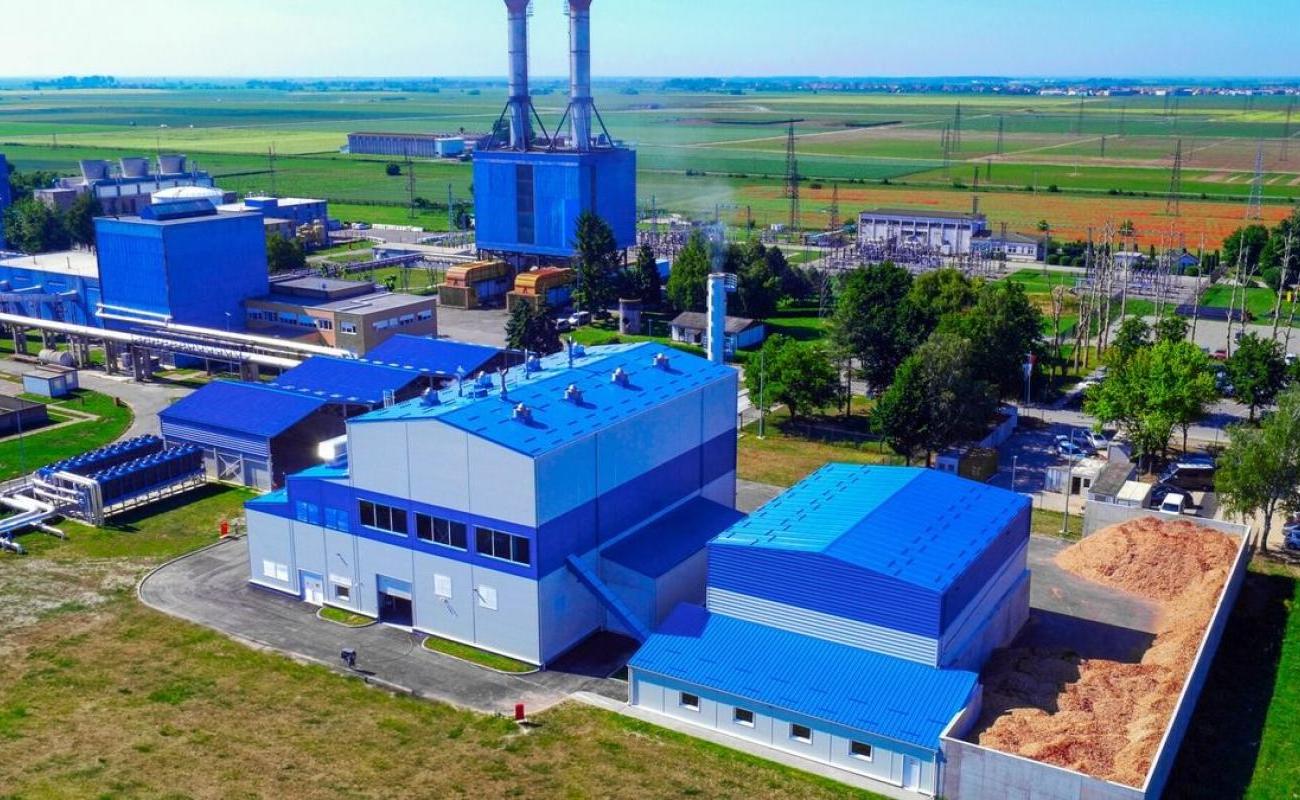Accelerating Industrial Decarbonization, IFC Helps Develop Serbia’s Largest CHP Biomass Plant

- IFC is partnering with Serbia`s largest tissue paper producer
- €106 million loan will support Drenik in developing a CHP biomass plant
Belgrade, Serbia, February 22, 2024—A new IFC investment will support a leading industrial player in Serbia in developing the country's first large-scale captive combined heat and power (CHP) biomass plant – boosting renewable energy generation and helping to reduce greenhouse gas (GHG) emissions in Belgrade, a city with air quality challenges.
The financing package to Drenik ND d.o.o. (Drenik), Serbia's largest tissue paper producer, includes €60 million "A" loan from IFC and €46 million trust loan from IFC acting in its capacity as the implementing entity for the Managed Co-lending Portfolio Program.
The investment will support Drenik in developing a CHP biomass plant with about 8 megawatts of electricity generation capacity and 16 tons per hour steam capacity, thereby replacing grid electricity usage, reducing natural gas consumption in its Serbian production facility and providing liquidity to operations.
In addition, IFC will provide advisory support to improve Drenik's corporate governance, elevate environmental and social (E&S) management systems by implementing an E&S action plan and strengthen insurance practices.
Igor Perić, Drenik`s owner, said: "Biomass power generation technologies offer cost-competitive solutions for energy and heat generation that are also efficient in carbon intensity. IFC's investment in our new plant will enable us to improve the sustainability and reliability of our energy sources, helping us strengthen our market position while contributing to crucial decarbonization efforts."
The project aligns with a key objective of the World Bank Group's Country Partnership Framework for Serbia for 2022–2026 to spur greener and more resilient growth. In compliment, IFC's strategy in Serbia focuses on addressing development needs in three key areas: competitiveness, connectivity, and climate.
"Driving sustainable and inclusive growth is at the heart of IFC's global strategy," said Nicolas Marquier, IFC Regional Manager for the Western Balkans. "Our investment supports that by boosting green and clean production for a key regional player, strengthening its environmental standards and energy efficiency, and reducing harmful emissions - ultimately supporting Serbia's transition to a resilient, low-carbon economy."
IFC has supported private sector development in Serbia for over 20 years, having invested close to $2.9 billion since 2001 and with a committed exposure reaching $351.7 million as of July 2023, boosting the country`s green transition, digital and physical connectivity, and integration into global value-chains.
